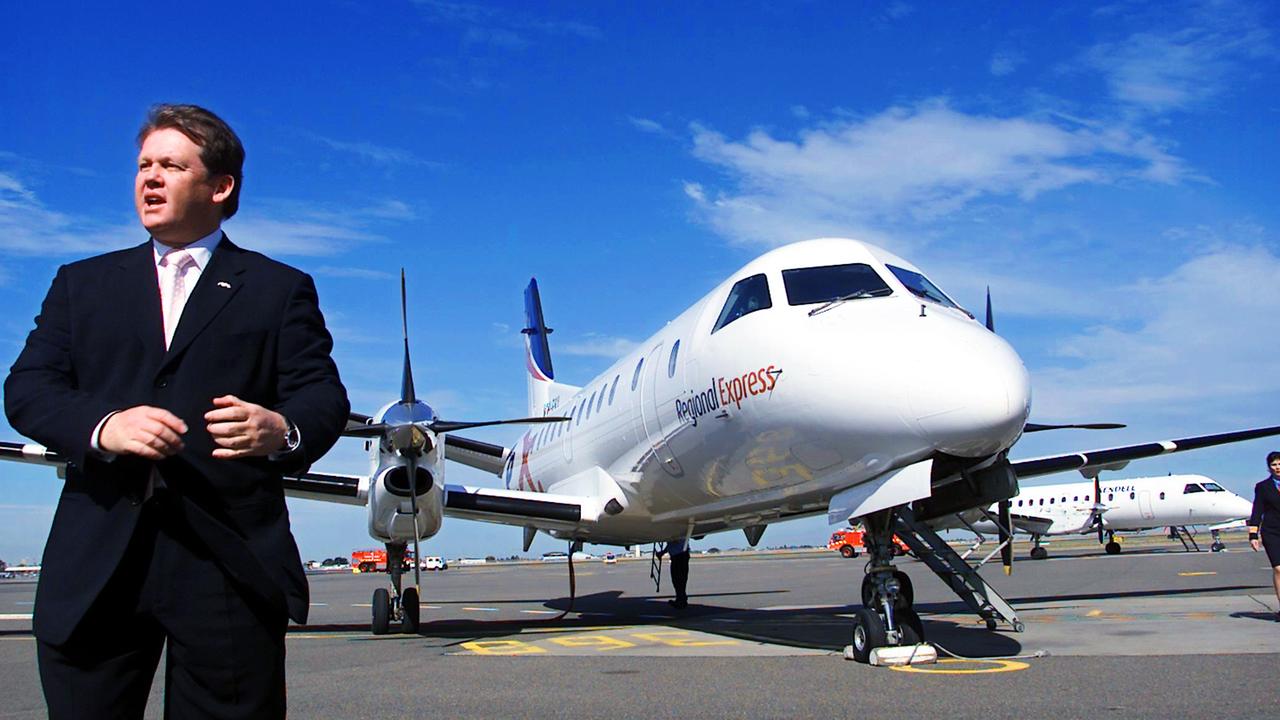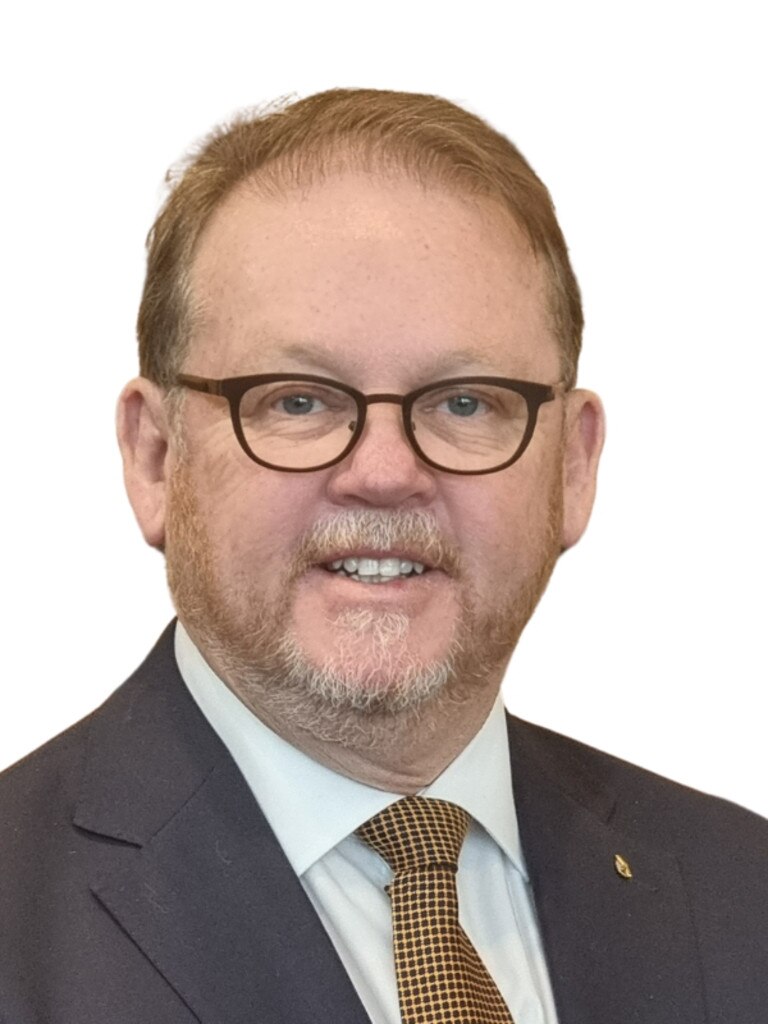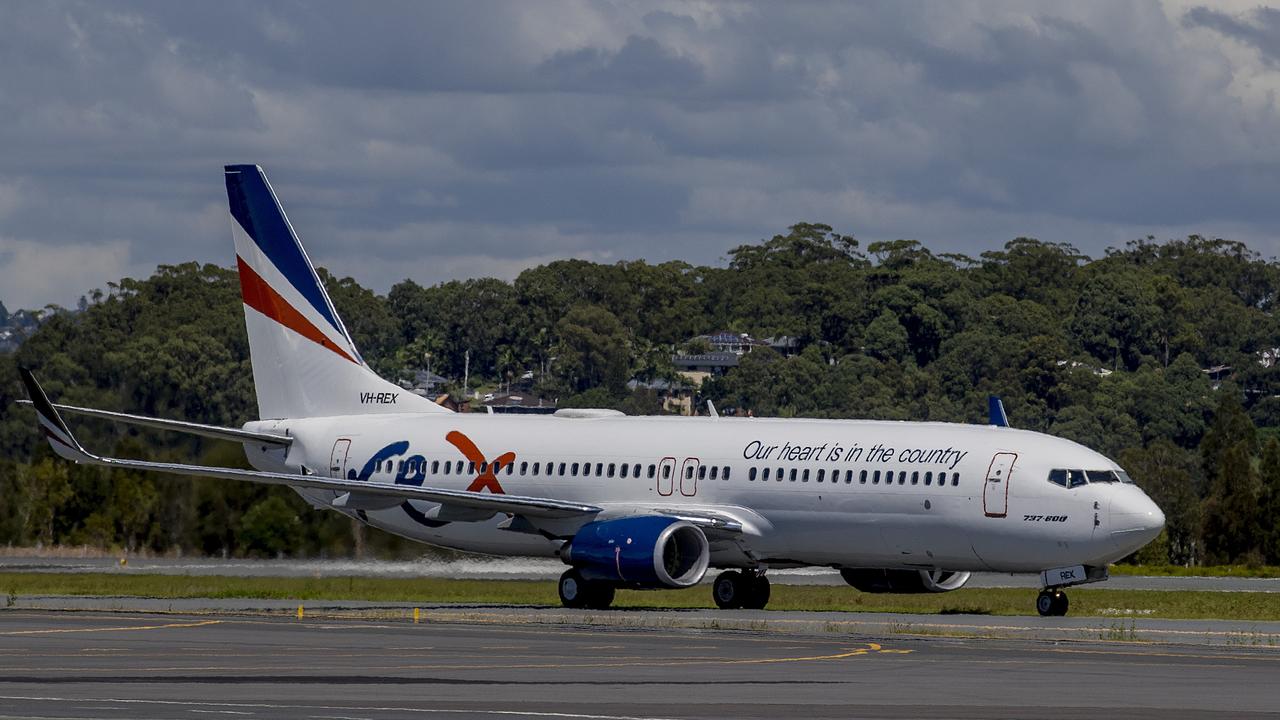Why a $160m plan to buy Rex and turn it into a profitable airline was ‘rudely rejected’
The Rex co-founder has revealed he and some airline veterans including Paul Scurrah hatched a plan to buy the airline for $160m but were sent packing by its largest shareholder Lim Kim Hai.

Business
Don't miss out on the headlines from Business. Followed categories will be added to My News.
The co-founder of Rex hatched a plan to buy the failed airline last September for $160m but was “rudely rejected” by the company’s largest shareholder Lim Kim Hai.
Michael Jones, who started Regional Express from the ashes of the Ansett collapse with Paul Scurrah and two others, said he was approached in August by a private equity firm that was gauging interest in a Bonza takeover.
Mr Jones said that did not interest him but he suggested they take a look at Rex.
“I approached Paul and some other guys who I trust and who know airlines, and said ‘let’s put a concept together’,” Mr Jones said.
“I wasn’t planning to put a huge amount of work into it because the biggest unknown was Lim but we crunched the numbers and worked out what needed to be done.”
Mr Scurrah was supportive of the plan but did not play a central role.
After sourcing data from Rex insiders, Mr Jones said the consortium decided that it was “definitely doable”.
“The Boeing 737s are where the upside for any investors would be, because there are structural and fundamental problems with the regional airline in relation to Saab serviceability,” he said.

“Also the regional service is always going to be capped by the number of seats and size of the market, so you’re never going to get above $250m to $300m in revenue.”
The jet operations provided much a better prospect and the consortium worked out that increasing the 737 fleet to between 15 and 21 aircraft, with each flying 11.1 to 11.3 hours a day, would produce a good return.
“It’s not rocket science but you need to get to those points and that would give you somewhere between 5 and 5.5 per cent market share, and that’s all you need,” he said.
“You’d be making good money and all of a sudden that airline enterprise value based on profitability would be around $650m.”
After reaching the conclusion the venture could work, they settled on an offer price of $160m – which was about twice the market cap. “So I called Lim and said there’s this consortium of guys, we’re fair dinkum, this is who we are, and who the investors are and we’re prepared to make an offer of twice the market cap or circa $160m,” Mr Jones said.
“He was basically rude, dismissive and not interested and said ‘you’re not serious, I would only accept $300m as a minimum and I’ve got three other parties who are prepared to pay that’.”
As a result of the rejection, the consortium contemplated a hostile takeover by going to the ASX and making a formal public offer, Mr Jones said.
“Had that happened, then all of the shareholders who now have lost their shareholding with absolute zero value would’ve been able to get something out of it and those people who are creditors wouldn’t be sitting there with a crystallised debt to the company,” he said.
“But Lim in his arrogance didn’t want to play that game, and I don’t think there were any other deals in the offing. It was just his extreme brinkmanship and craziness in relation to that.”

Eight months later, Rex was in deep strife, and sought the help of EY to conduct an independent business review over 10 weeks.
As that unfolded, tensions in the boardroom exploded, resulting in Mr Lim being ousted as executive chairman in favour of deputy chairman John Sharp.
By the time the final report was presented to the Rex board on July 30, it was clear there was only one option for Rex: appointing EY as administrators.
Mr Jones said he was sad to see Rex fail in this way but he was not particularly surprised, saying Mr Lim’s autocratic management style had worsened over the years.
“He is incredibly intelligent, but he was almost becoming a megalomaniac – the belief in himself and the delusion,” said Mr Jones, who brought Mr Lim on-board as a shareholder of Rex in 2002.
“For (executive chairman) John Sharp and Lee Thian Soo to have voted against him, things must’ve got pretty bad.”
The first creditors’ meeting on Friday will clarify the debt accumulated by Rex and hopefully answer employees’ questions.
A Federal Court hearing this week was told there are 4450 creditors, and possibly tens of thousands more once customers owed refunds for cancelled flights are added.
A notice posted on the Rex website said there would be no refunds due to the arrangement with Virgin Australia to accommodate Rex customers on flights for free.
More Coverage
Originally published as Why a $160m plan to buy Rex and turn it into a profitable airline was ‘rudely rejected’









